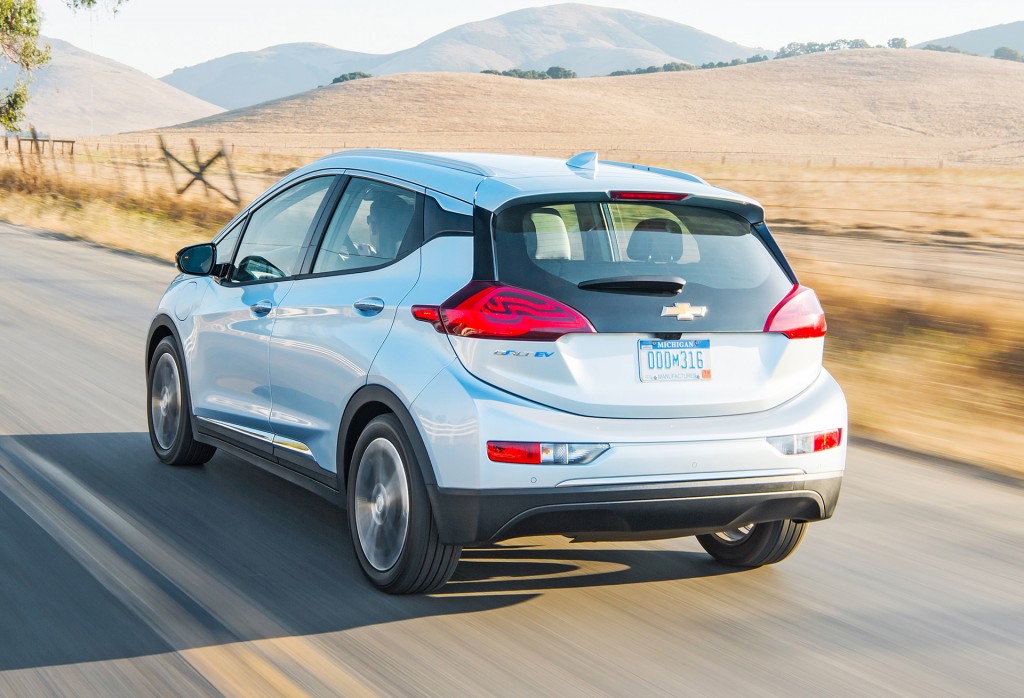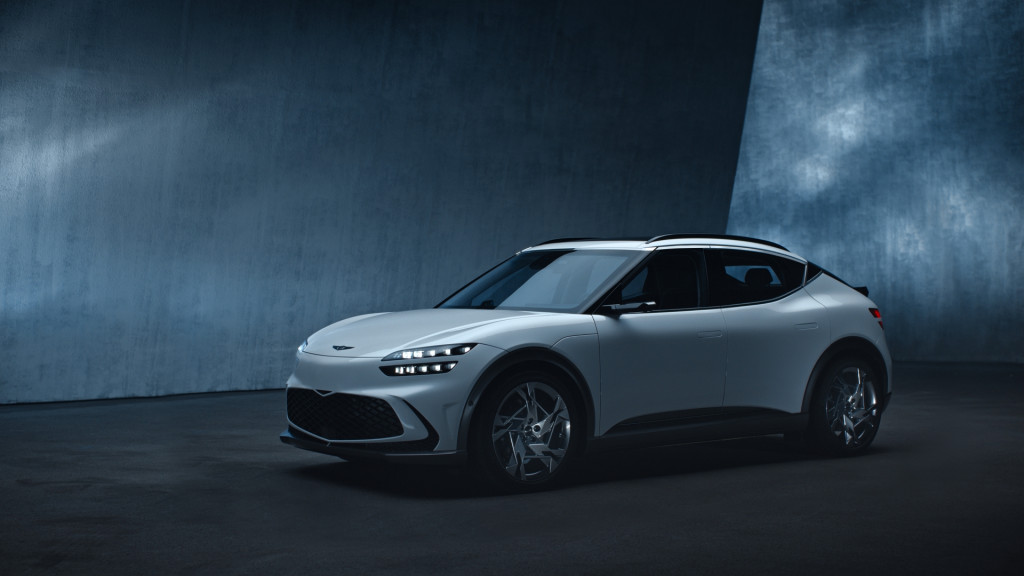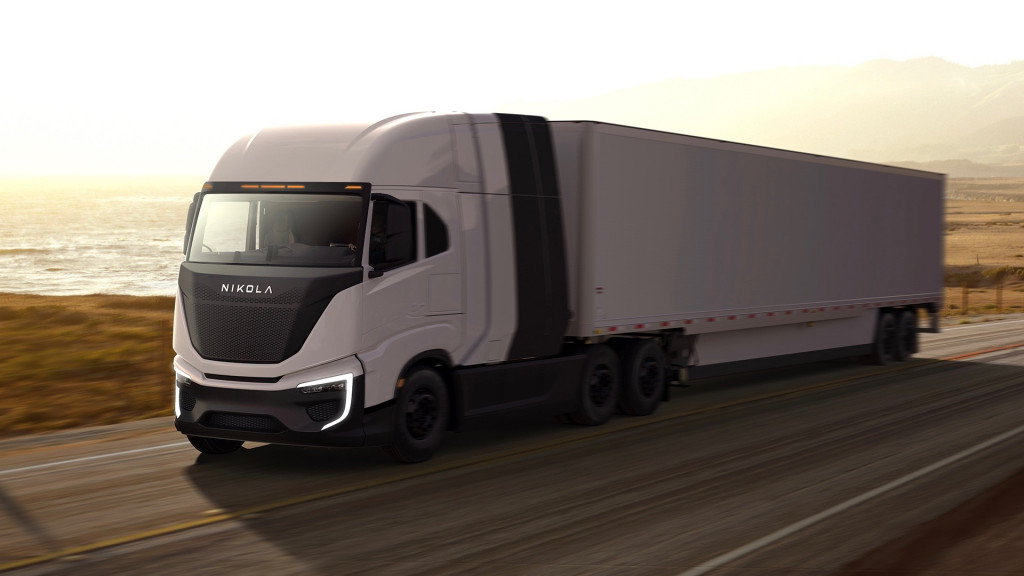Subaru EV, Rivian range, Genesis electric shift, Tesla Roadster and Cybertruck delayed: The Week in Reverse
Which EV might potentially get a big boost in range after the recall remedy?
What once common fuel was verified as completely phased out in the world as of this week?
This is our look back at the Week In Reverse—right here at Green Car Reports—for the week ending September 5, 2021.
On Friday, the Rivian R1T electric pickup and R1S electric SUV were EPA-rated for range and efficiency. Both of them earn range ratings of well over 300 miles—although there are some lessons here about efficiency as it compares to other EVs.

2017 Chevrolet Bolt EV
GM confirmed that the battery fix for 2017-2019 Chevy Bolt EV models, involving full replacement of cell modules, could bring them more range than they had when new. Although it could be many weeks or months before a fix—and the lack of one yet has shut down production and stopped sales.
Subaru gave a first glimpse of its Solterra EV, due in mid-2022. The outdoorsy brand teases a radically different cabin interface for the model and claims that it will be the most technologically advanced Subaru ever.
Concept cars and announcements started flowing in from Germany, where the Munich auto show press days are being held over the U.S. holiday weekend. BMW has also teased an i Vision Circular concept car for the show, in which it presents ideas on how it might seek drastic CO2 reductions per vehicle plus more recycled content. And with the Grandsphere EV concept for the Munich auto show, Audi is showing an inside-out yet racy-looking future that takes advantage of lounge-like travel with Level 4 autonomous driving but can also inspire the driver. Audi also announced a new strategy that’s based as much around software and mobility as EVs. It’s already announced that new-model launches will be all-EV starting in 2026 and internal-combustion sales will end in 2033.
Tesla confirmed delays for the Roadster and Cybertruck this past week. CEO Elon Musk revealed the Roadster won’t ship until 2023, and in an internal company update he reportedly announced the Cybertruck is now delayed to late 2022. The Semi is on that overdue list, too. Tesla is also attempting to become a “retail electric provider” in Texas. Might it possibly be able to sell electricity to Texans before it can sell them cars?

Genesis GV60 –
Hyundai’s Genesis luxury brand is aiming to follow a “dual electrification strategy” in the future, including exclusively battery electric and hydrogen fuel-cell model introductions from 2025 and 100-percent zero-emission models by 2030. Hyundai earlier this week revealed an autonomous “robotaxi” version of its Ioniq 5 electric car. With a suite of cameras, radar, and lidar sensors, the car was made by Motional, the joint venture of Hyundai with Aptiv, and it will be put to use by Lyft.

Nikola Tre
In the truck arena, Nikola, the once very buzzworthy hydrogen fuel-cell truck startup, is turning to the automotive supplier Bosch, not GM, for its fuel-cell hardware due to go into U.S.-assembled trucks. Karma Automotive is attempting to diversify into the commercial vehicle business, with its new E-Flex platform the basis for electrified trucks it showed this past week. And California’s Air Resource Board is helping enable the largest deployment of electric semis yet in the U.S.—including the charging infrastructure for them.
The very private company behind the Alpha Wolf electric truck concept hasn’t revealed much about its plans to develop, make, and bring its retro-styled EVs to market by late 2023. And you can see the Wolf concept at the Petersen Automotive Museum.

Gas pump
The world has finally ended the use of leaded gasoline, the UN reported earlier this week. So we thought we’d refresh our readers, briefly, on why lead was introduced in the first place and why it took so long to be phased out.
And could synthetic fuels reverse the phaseout of internal combustion new-vehicle sales?
_______________________________________

